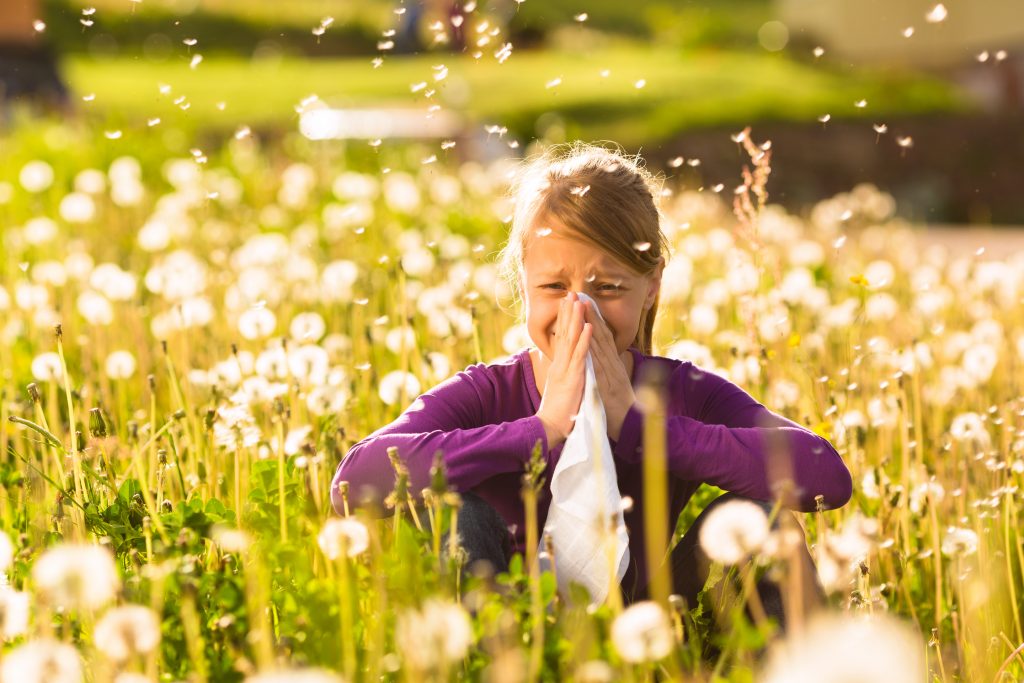Over the past couple of decades, there has been an alarming increase in people suffering from food allergies, with dairy and gluten-containing grains at the top of the list of reported problem foods. Food allergies have increased in children by 50% since 1997. So before we dive into how exactly probiotics can help to prevent allergies, let’s talk about this first. Like us, you may be wondering, why is there such an increase?
Possible Explanations for Today’s Food Allergies
One explanation, the hygiene theory, links this problem to the society we live in.
It posits that our sanitized environment prevents the proper development of the immune system through lack of exposure. The lack of early childhood exposure to certain bacteria prevents people from interacting with good microorganisms or probiotics that help develop a healthy immune system later on.
Studies have shown that the more antibiotics a child is given, the higher their risk for developing allergies and related conditions, like asthma and eczema. In 2017, a study by the University of Florida Institute of Food and Agricultural Sciences (UF/IFAS) found that seasonal allergy sufferers may find relief when a combination of bacteria strains L. gasseri, B. bifidum, and B. longum were shown to reduce the symptoms of hay fever and improve quality of life (by easing sinus congestion and itchy, watery eyes).
But, how do probiotics actually help prevent allergies?
Probiotics and Your Immune System
Probiotics work to fight bad bacteria from entering your bloodstream.
Your mucosal barrier that lines the intestines is only one cell layer thick. Between these cells, there are protective tight junction proteins that act as gatekeepers, allowing for nutrients to be absorbed into the bloodstream through proper channels. Probiotics direct the production of these proteins and also signal them to open and close as needed, so the immune system in the submucosal layers can fight bad bacteria.
When tight junction protein function goes awry due to lack of beneficial flora, the immune system can become overly active due to proteins, allergens and chemicals from food passing through to the bloodstream. This can result in both IgE (anaphylactic) and IgG delayed sensitivity allergic reactions.
How Probiotics Can Prevent Allergies
When probiotics are taken, studies show that they start to down-regulate the production of chemicals called cytokines, the inflammatory chemicals produced by the immune cells that cause most of the annoying and sometimes life-threatening symptoms related to food allergies.
Anything that affects our beneficial flora can begin to alter our immune system regulation and cause the development of food allergies. Environmental toxins like pesticides and other drugs besides antibiotics, like acid-blocking drugs and corticosteroids, can also impact our beneficial flora. Even stress can have an impact on gut immune issues!
You can, however, protect against these bad agents that impact our beneficial flora by regularly taking a probiotic. Taking a probiotic supplement can help ensure your immune system responds optimally to these inflammatory agents and can help prevent you from developing a food allergy.
Selecting the Right Probiotic Makes a Difference
All probiotics are not created equal. Choose a brand that conducts studies on their specific strains of bacteria, as well as their product’s survivability and impact on the microbiome. Make sure the bacteria count is guaranteed through the product’s expiration date, not just at the time of manufacture. Look for a probiotic that has no refrigeration required, so you can take your supplement with you wherever you are. It should be taken every day.
Most importantly, find a probiotic that is suitable for each member of the family to ensure that all your loved ones can be proactive about their gut and overall digestive health.
Take care of your gut health and enjoy the foods that you love.
James LaValle R.Ph., C.C.N
James LaValle is a nationally recognized clinical pharmacist, author, board-certified clinical nutritionist, and founder of Metabolic Code Enterprises, Inc.
This article is for informational purposes only. This article is not, nor is it intended to be, a substitute for professional medical advice, diagnosis, or treatment and should never be relied upon for specific medical advice.

Share this Post